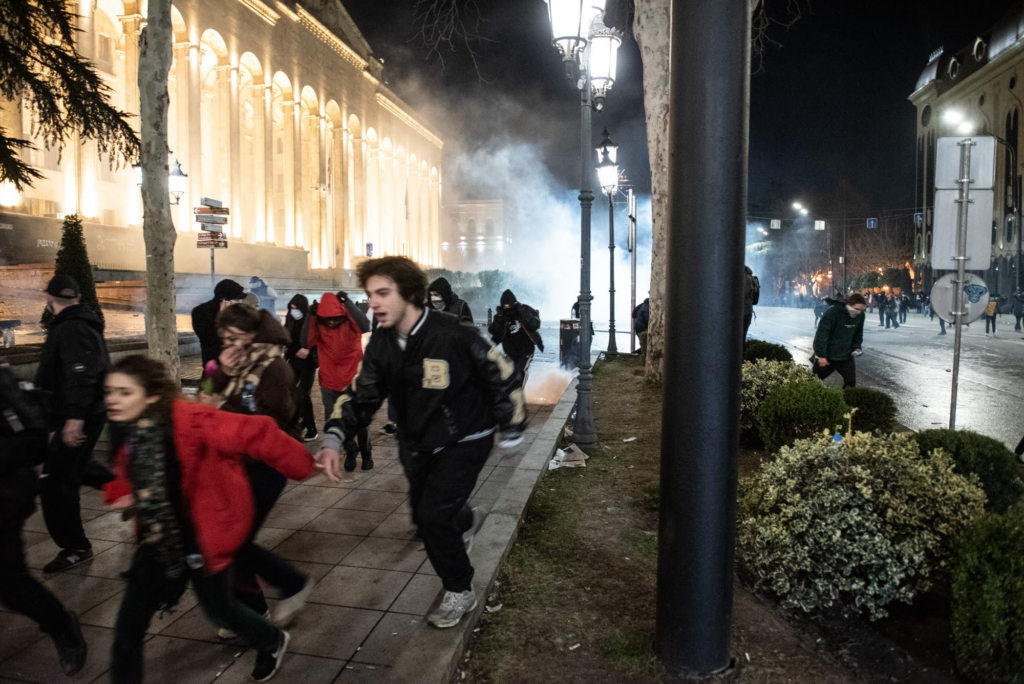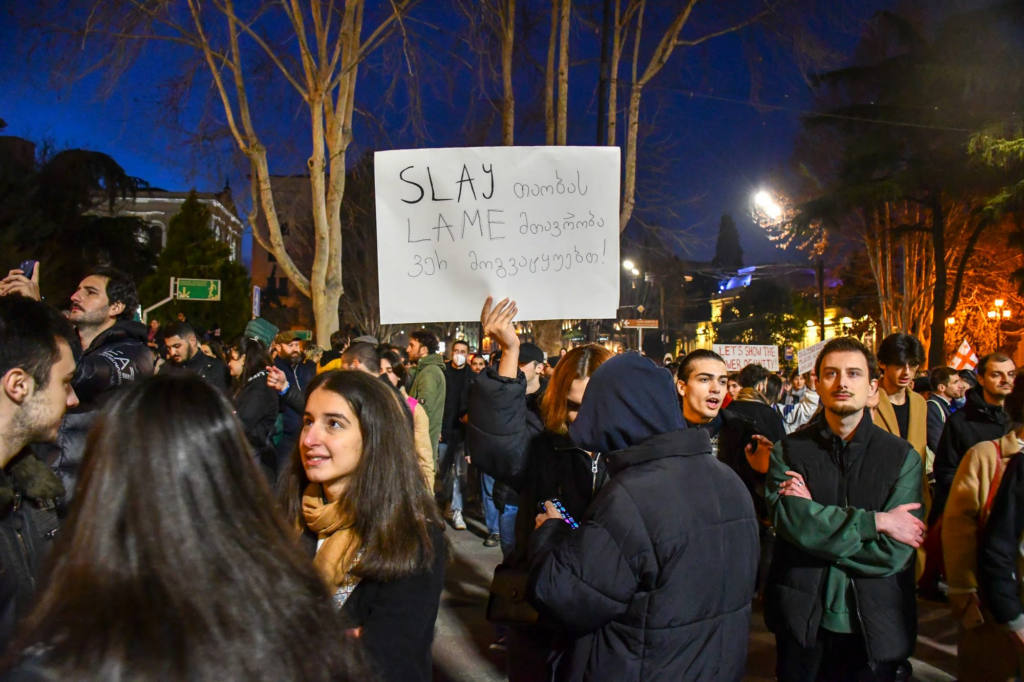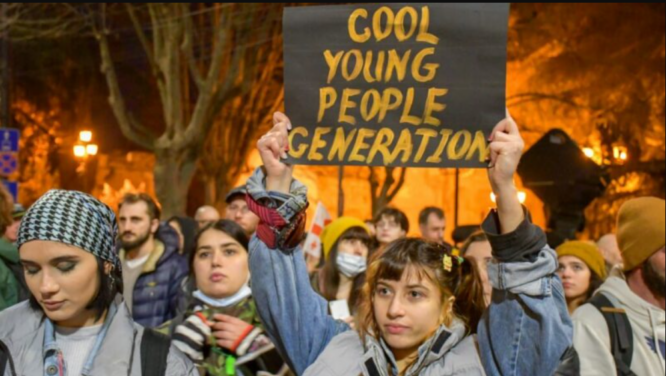Sassy posters, raving to sirens, dancing with water jets, and scooter barricades have become emblems of the protests that defeated Georgia’s controversial foreign agent bill and Generation Z’s (born 1997–2013) political entry.
Anastasia Pirtskhalaishvili, 21, feels this demonstration was more humorous. After the ruling party passed the foreign agent bill in its first reading, thousands of young people protested in early March, including Pirtskhalaishvili. The proposed bill, “on transparency of foreign influence,” resembled Russia’s 2012 “foreign agent” law, which has been used to repress dissent and opposition.
A group of parliamentarians who left the ruling Georgian Dream party last year and founded People’s Power in August 2022 advocated it. The law would “compel foreign-funded non-governmental organizations to register as foreign influence agents,” according to Eurasianet.
Thousands of Georgians marched against the measure. Images of young people like Pirtskhalaishvili standing unflinchingly while water cannons are fired, donning snorkels, goggles, face masks, and scarves to shield from pepper spray and tear gas, or dancing as the riot police advance have gone viral online.
Pirtskhalaishvili thinks youth protests were serious despite their humor. “Dancing to the sirens also showed that we are not afraid and can overcome this.”

Pirtskhalaishvili protested peacefully outside Parliament on March 7. She was arrested and tear-gassed. “Twice they dispersed people, and both times we returned to the area in front of the Parliament, but so much gas was released that my throat burned terribly,” she says.
“Two policemen sneaked up behind me and arrested two of my friends and me while we were shouting at a peaceful demonstration.”
She claims she was charged with public order and insulting police. Though released, her trial continues. The day after her arrest, Pirtskhalaishvili protested again.
Georgia belongs in Europe.
Nikoloz Arobelidze, 22, tells OC Media that the government should not pass a law if tens of thousands of people oppose it.
After observing riot police disperse the previous night’s rally, Arobelidze attended the March 8 protests despite the risk of injury. “I was standing in front of parliament when I heard chaos, people shouting, ‘Run, help, they are shooting at us.’ He recalls people fleeing.
“Seconds before that, I thought nothing bad would happen to my friends and me because we were standing peacefully, but suddenly I saw some [tear gas] thrown, which burned my face, eyes, nose, and throat terribly. He adds, “I understood that I should have breathed less, but because of the panic, it became more frequent.” The coughing continued for several days.
Like many others, Arobelidze said that for young people like him, the protests were about more than this law—they were about the country’s democracy and place in Europe.
“We stood there and told the government that we want a bright future where we don’t have to fear that the Russians will come and take the country or that their tanks will hit us,” he said. “Everyone thinks Georgia belongs in Europe.”
Protesters took refuge at Kashueti Church on March 8 as riot police used tear gas and water cannons to disperse them from Parliament. Since the protests began the week before, 23-year-old Gvantsa Seturidze had been protesting. Gvantsa thinks the March 7 and 8 protests had a distinct vitality as a new generation spoke out.
She noted how people distributed eye cleansing items, water, and face masks and helped others find shelter throughout these days. “The young people somehow lightened everything,” she remarked of the “very difficult period.”

Gen Z protests differently. At the rally, children asked a police officer if he wanted pretzel sticks. “The police officer said, ‘Don’t think that I’ll refuse,’ and he took it,” she recounts.
All the young individuals who spoke to “OC Media” said they had protested in Georgia with people of all ages, including against the draft foreign agent law. At this protest, Gen-Z and millennial voices were loudest.
“Slay generation, the lame government”
Sarcastic and humorous protest posters became viral online. Gen Z is untrollable. “Hello, 112? “78 of us pressed a button, and we are all fucked now” (a misrepresentation of the 76 MPs who voted for the law and Georgia’s emergency response number 112), “We go to clubs because of the sirens and smoke, you bastards!” “You can’t poison me with your gas ’cause my ex was more toxic.” Lists continue.
“SLAY generation, LAME government can’t deceive us” was a popular web poster. The poster’s author, 23-year-old Mariam Kereselidze, told “OC Media” that she was hesitant to use it at the demonstration, but she did. As a content manager, I work with texts daily. This message came to me abruptly. My poster was well-received by many. “When I explained ‘slay’ or ‘lame’, they laughed,” adds Kereselidze.
She attended the event because she believes tiny steps can lead to huge victories. She stated, “We have lost many battles in recent years, but this one, in my opinion, was decisive.”

